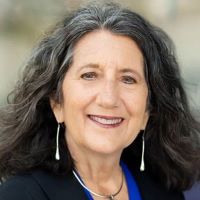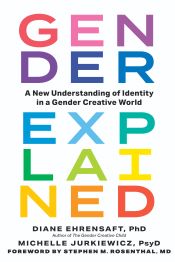As far as the various gender identity terms we use in society today, how does one know which word to use to describe someone correctly? Ehrensaft said, “Every person has a unique gender web. So even when we have these categories… there’s spaces in between. For example, in our clinic, there are several children, or youth, adolescents, who say they’re agender, but it means something different to each of them, so you have to go further… the one that’s most prevalent right now as a category is nonbinary, and nonbinary usually goes along with the pronoun ‘they,’ which makes many people very uncomfortable because it’s not grammatically correct… but what really makes them uncomfortable, I believe, is this new category of gender…” She concluded by saying, “There’s been moments in history where we have strong objections to change because it makes us anxious and it defies what we know of the world… it’s basically been decades and decades of socialization and therefore it becomes habitual, and that’s why it feels like bedrock…”

Gender is no longer bedrock, but it’s now becoming moving boulders for many people, and for any of you who are hikers, it is so much easier to hike on bedrock.”


A gender-equal society would be one where the word ‘gender’ does not exist: where everyone can be themselves.”

Podcast: Play in new window | Download
Subscribe: RSS

Want to join the discussion?
Feel free to contribute!